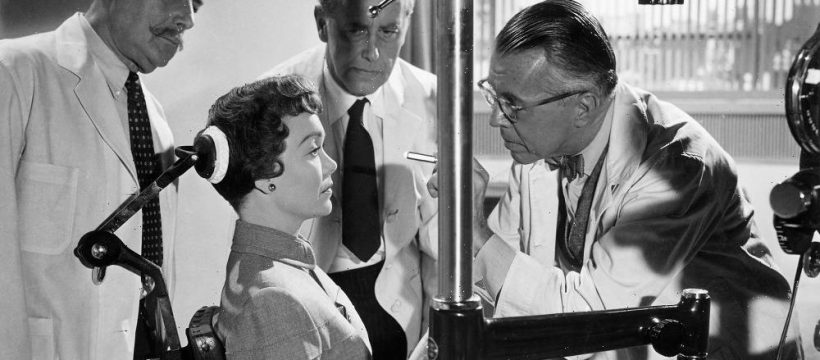The Locarno Film Festival recently announced a complete retro dedicated to Douglas Sirk, 35 years after the death of the director best known for melodramas made in Hollywood in the 1940s and 1950s, such as “Magnificent Obsession” and “Written on the Wind,” that aims to provide a fresh critical interpretation of his work.
Sirk, who was born in Denmark and worked in Germany, which he left for Hollywood during Hitler’s rise to power, later returned to Europe and eventually retired in Switzerland.
Among his most prominent fans were late great German filmmaker Rainer Werner Fassbinder and Bernardo Bertolucci.
For the first time, Sirk’s filmography will be reviewed in the light of unpublished documents made available by the director’s family through the Douglas Sirk Foundation and preserved since 2012 at the Cinémathèque Suisse, broadening the perspective on this major auteur.
Variety spoke to Locarno’s artistic director Giona A. Nazzaro about his goals for the Sirk retro. Excerpts.
What are some of the main reasons for this retro?
Douglas Sirk has always been on our minds for several reasons: it is widely known that when he left Hollywood he came to Switzerland, and specifically to Ticino [the country’s Italian-speaking region] and he chose Ascona, a stone’s throw from Locarno, as the place to spend the rest of this life. So first of all we consider Douglas Sirk as a member of the community in Ticino.
The second reason is that when in 1978 Locarno did a small showcase of some of his American pictures it somehow resonated and fit in with the rediscovery of Sirk that was going on at the time in cinephile circles.
In Germany there was Fassbinder who was paying lots of attention and is at the forefront of the recognition of how crucial his work is. Fassbinder placed his work in a completely different context, which is consistent with what the Nouvelle Vague guys had done with their heroes. But since Sirk was so identified with the rulebook of the Hollywood melodrama, people just couldn’t look past it.
So that 1978 taste of Sirk allowed many people to discover a master of form, and a really political master of form, at that.
Why is Sirk so actual?
Because he’s an extremely modernist director. And in a way he also is a continuation of the work that Locarno has done over the years in rediscovering other “classic” American directors, such Lubitch or Leo McCarey, Allen Dawn and others.
Yes, but why now?
The reason why we are doing this now is because finally we have had complete access to the archives that have been deposited in the Cinematheque Swiss in Lausanne. The co-curator Bernard Eisenschitz, whose latest book is on Nicholas Ray and who also wrote another crucial book on Fritz Lang has dived deep into the materials. What surfaced is that Douglas Sirk is not only those unforgettable films that he did in Hollywood: He’s a full blown European intellectual who crossed several cultures. So in a way Sirk is consistent with what other directors from Germany and Austria did when they moved over to Hollywood. They brought the whole baggage of culture.
Are there other reasons?
Because right now Sirk is a kind of accepted currency in the cinephile landscape. But, once again, somehow the conversation is still and always about those incredible Hollywood movies.
Beneath and beyond there is a huge wealth of works — and also the things that he did in Switzerland — that is a whole new Sirk continent to discover, and we though this was the right time to do that.
This will be the first complete Sirk retrospective. We are collaborating with several institutions, Lausanne and Paris. And it will travel. It will comprise not just the films Sirk directed, but also the ones in which he appeared, and all the documentaries that were made about him while he was still alive, and some that came after. So we are trying to portray the man quite thoroughly. The man; his work; his time; the different contexts in which he operated in all the different layers of complexity.
Source: Read Full Article
